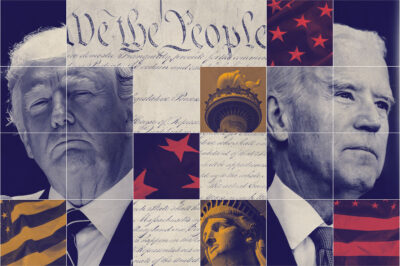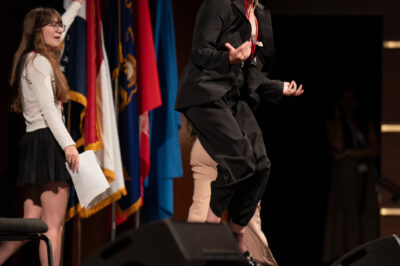On Wednesday afternoon, the Special Rapporteur on Racism, Racial Discrimination, Xenophobia, and Related Intolerance, Mr. Doudou Diène, boarded his flight to Washington, D.C., clearly affected by his visit to Puerto Rico. Mr. Diène had heard numerous accounts of pervasive systemic and institutionalized criminalization of poverty and race by both Puerto Rican and Federal authorities.
On his first day, Mr. Diène was driven to the Guerrero Prison facility, over three hours from San Juan, where he toured the prison facilities and residence areas, with limited and guarded interaction with prison inmates. Leaving Guerrero Prison, Mr. Diène visited the town of Hormigueros, the site of the FBI’s 2005 raid on Filiberto Ojeda Rios’ home. In that raid, over 100 FBI agents stormed the house under cover of sniper fire. When Rios was mortally wounded, the FBI denied him medical aid and left the Pro-Independence and Machetero leader to bleed to death over a 24-hour period. Mr. Diène examined up-close evidence of the FBI’s use of high power fire against 72-year-old Ojeda and his wife, and stood on the very spot where Rios died. To this day, the FBI has obstructed all attempts by Puerto Rico’s government officials to investigate the incident. On an island known for its political in-fighting, the Rios killing has unified people across the political spectrum in outrage.
Later the same day, Mr. Diène presided over a public hearing in the west coast City of Mayaguez, where at the Eugenio Maria de Hostos School of Law he heard stories from ex-political prisoners, advocates of indigenous rights, residents of marginalized communities. The ACLU of Puerto Rico’s Eva Prados read from her preliminary findings in an ACLU investigation into 42 unexplained prison deaths of mostly young drug-addicted homeless men at the Guerrero Prison facility previously visited. On the second day of his visit Mr. Diène visited the east coast Villa Cañona Community in the town of Loiza. The town of Loiza was settled hundreds of years ago by “Cimarrones” or escaped slaves. To this day, Loiza maintains its strong African roots and closely guards its culture and music, to its credit, and to its detriment.
Loiza’s people told stories of vicious police abuse against minors and women with children. Two ACLU clients spoke: One, an alternative school principal, related being stripped naked, beaten, and verbally abused in the presence of his students, and another, the mother of a severely mentally disabled young man, spoke of outrageous misconduct by police officers targeting her son and other residents of this proud community of African heritage. Presenters spoke of how in the name of the War Against Drugs, they have become prisoners in their own homes, too fearful even go to the community mini-mart or send their children to school.
Mr. Diènes visit to Puerto Rico ended with a public hearing at the Inter-American University School of Law in San Juan, where members of the Dominican community spoke of racial profiling and vicious police brutality against young Dominican immigrants. Presenters spoke of a particular method of baton beating by that always ends in organ damage. Several young men displayed the scars of operations necessitated by these beatings. Community leaders and advocates spoke of displacement of poor black communities of San Juan to make room for businesses and the rich.
Human Rights Attorney Wilma Reverón explained that the FBI in Puerto Rico has more power than the Puerto Rican government itself and uses it to repress the people. She spoke of the intrinsic and inescapable relationship between race and Puerto Rico’s 500 year history of colonialism which renders meaningful application of the Universal Declaration of Human Rights impossible.
Hopefully, the Special Rapporteur’s visit to Puerto Rico is only the beginning of a thorough investigation into racism here. In the last U.S. census, 80 percent of Puerto Ricans classified themselves as white, in contradiction of a common Puerto Rican quote “el que no tiene Dinga, tiene Mandinga” which roughly means you are either from Dinga, or from Mandinga. Approximately 4 million people live separate and unequal, politically speaking, in a U.S. territory that is neither fish nor fowl.



